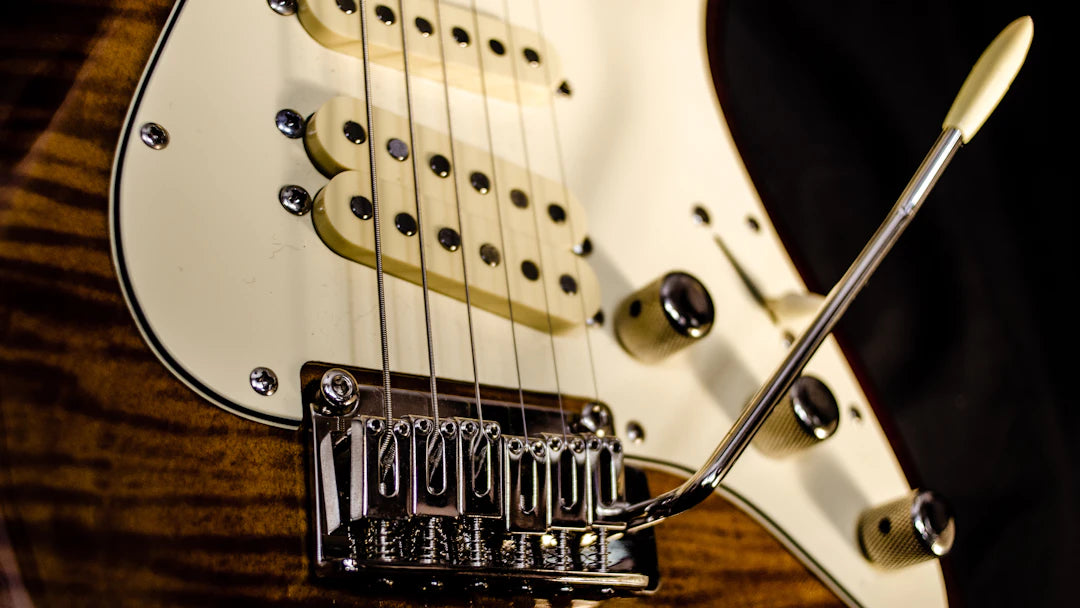Frequently Asked Questions
1. What are the two primary types of guitar pickups?
2. How do single-coil and humbucker pickups differ in sound?
3. What factors should I consider when choosing guitar pickups?
4. How do I ensure physical compatibility when replacing guitar pickups?
5. Why is it important to test guitar pickups before making a decision?
When it comes to customizing your guitar's sound, choosing the right pickups is essential. Understanding different types of guitar pickups and how they can impact your tone can significantly enhance your playing experience. Whether you're a beginner or a seasoned musician, here are some crucial factors to consider when selecting guitar pickups.
Understanding How Guitar Pickups Work
Before diving into the specifics of choosing pickups, it’s essential to grasp how they work. Guitar pickups capture the vibrations of your strings and convert them into electrical signals. These signals are then sent through your amplifier, turning your acoustic energy into an electric sound that can be manipulated and enjoyed.
Types of Guitar Pickups
The two primary types of guitar pickups are single-coil and humbucker pickups. Each type has its unique characteristics, making them suitable for different musical styles.
- Single-Coil Pickups: Known for their bright tone and excellent clarity, single-coil pickups are often favored in genres like blues and rock. However, they are also more susceptible to electromagnetic interference, which can introduce unwanted noise.
- Humbucker Pickups: These pickups are designed to cancel out noise, making them ideal for heavier music styles like metal and hard rock. They provide a thicker and warmer tone compared to single-coils.
Consider Your Playing Style
Your playing style significantly influences the type of pickups you should choose. Here are some questions to consider:
- What genre of music do you play most often? Depending on whether you lean towards rock, jazz, pop, or metal, the pickups will differ.
- Do you prefer a bright, articulate sound, or a warmer, fuller tone? Single-coils are bright, while humbuckers are typically warmer.
- How do you play? If you're heavily reliant on distortion or effects, consider how the pickups will interact with your setup.
Pickups and Tone
Understanding tone is crucial when selecting pickups. Your tone is affected not only by your pickups but also by the materials used in your guitar, the amplifier, and your playing technique. Here are some specific tone considerations:
Resistance and Output
Pickups come with varying resistance levels, measured in ohms. Higher resistance typically correlates with a higher output level, which may result in a more aggressive sound. Conversely, lower resistance often results in a cleaner, more open tone. Different styles will favor different outputs:
- Jazz players may prefer lower-output pickups for clarity
- Rock musicians often favor medium-to-high-output pickups for their punch
Magnet Types
The magnet type used in a pickup also plays a vital role in shaping your tone. The most common types are Alnico and ceramic:
- Alnico Magnets: Made from aluminum, nickel, and cobalt, Alnico magnets are known for their warmth and complexity, making them popular among blues and rock players.
- Ceramic Magnets: Offering a louder and sharper tone, ceramic magnets are perfect for distortion-heavy genres, like metal.
Physical Compatibility
When replacing or installing pickups, ensure they are physically compatible with your guitar. This includes considering the following:
- Mounting Style: Pickups can be mounted either on the top of the guitar body or suspended under covers. Make sure the style matches your existing setup.
- Size: Different guitars require pickups of different sizes. It’s crucial to check that the replacement pickups will fit your guitar's cutouts.
The Importance of Quality
Quality is paramount when choosing guitar pickups. Consider opting for reputable brands known for their craftsmanship. One popular term in the industry is OEM guitar pickups, which refer to original equipment manufacturer pickups. These are built to standard specifications and may deliver a consistent and reliable sound.
Aftermarket vs. OEM Pickups
Investing in aftermarket pickups can sometimes offer a unique tone that suits your individual style. However, OE pickups generally provide a more controlled and recognized sound, maintaining the integrity of your instrument. Weighing the pros and cons can lead to a wise decision on which route to take.
Don’t Forget About Wiring
The wiring used in your pickups can also have an impact on sound quality. Depending on your skill level, you may wish to replace the wiring when you swap out the pickups. Make sure to consider:
- Quality of Wiring: Using quality wiring can prevent signal loss and maintain tone integrity.
- Shielding: Proper shielding can help minimize noise, which is particularly crucial for single-coil pickups.
Testing Your Pickups
Before making a final decision, it's advisable to test your guitar pickups in a controlled environment. If possible, try different pickup types in a store, playing through various amps and setups to compare tones. Pay attention to what resonates with your playing style and sound preferences.
Consult Experts and Other Musicians
As you navigate through the vast ocean of guitar options, don’t hesitate to reach out to professionals. Consulting with guitar experts or fellow musicians can provide valuable insights. They may recommend specific pickups based on personal experiences or knowledge of your playing style.
Budget Considerations
Your budget will, of course, play a role in which pickups you can select. While it’s tempting to go after the most high-end options available, don’t overlook more budget-friendly picks that may still offer outstanding quality. Investing in Odyssey guitar accessories could provide the balance you need between quality and cost.
In-House vs. Custom Jobs
Some guitarists opt for custom pickups tailored to their specific wishes. While this can result in a unique sound, it often comes with a higher price tag. For those starting, in-house pickups (standard options) may provide the perfect starting point before you delve into custom territories.
Ask Yourself: Are You Ready for the Change?
Changing guitar pickups can significantly alter your sound, enhancing your playing experience. However, be certain that you are looking for a change. Analyze what you currently like about your pickups and what you wish to improve or modify. This way, your selection is strategic rather than reactive.
Think Long-Term
As you consider your options, think long-term. Your musical preferences can evolve, and you may find that what works today may not be as suitable for you in a few years. Consider a versatile pickup that allows you to explore different styles. This will ensure your investment pays off over time.
Amazing Sound Awaits You!
The journey to finding the ideal pickups can be a fulfilling one. Remember that the right choice can enhance your playing experience and take your music to unprecedented dimensions. Explore the different options, consult experts, and don't hesitate to experiment. With the right pickups, you'll create soundscapes that resonate with your audience and inspire your performances.











